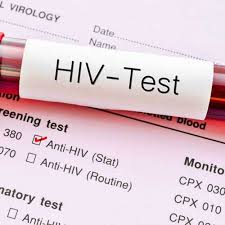By Abujah Racheal
The National Council on Health (NCH) has approved a policy to lower the age of consent for voluntary HIV testing in Nigeria from 18 to 14 years.
This followed hours of intense, wide-ranging deliberations at its 66th meeting in Calabar, Cross River.
The debate reflected deep concerns around public health priorities, legal frameworks, adolescent protection, and Nigeria’s high HIV burden, particularly among young people.
Chairing the Council, Prof. Muhammad Ali Pate, Coordinating Minister of Health and Social Welfare, on Friday, said the revision was necessary, given the scale of the HIV epidemic among adolescents.
He recalled that in 2014, 380,000 children in Nigeria were living with HIV, and one in three young people aged 15 to 24 newly infected with HIV in 2009 resided in South Africa or Nigeria.
He added that Nigeria had approximately 1.7 million AIDS orphans that same year.
Pate stressed that vulnerable groups, including orphans without parents to consent on their behalf, must not be left behind.
He noted that experiences from South Africa, where adolescents from age 12 could access HIV testing independently, had improved early detection.
“Fourteen is where it hovers here in Nigeria. We’ve crafted a policy that is consistent with our own culture, norms and laws,” he said.
He cited both the Penal Code provision for individuals under 14 and the national law, which sets the age at 18.
He urged the council to seek consensus: “I do not want anyone to walk away thinking they have lost. At the end of the day, we want what is best for Nigeria.”
He also suggested an interim option, setting the age at 15 and reviewing it in 2026 based on expert guidance but members later leaned more strongly toward 14.
Supporting the proposal, Prof. Baba Gana, Borno State Commissioner for Health, highlighted Nigeria’s demographic profile, noting that the country is the world’s sixth most populous nation and is projected to rank third by 2050.
“Currently, 42.5 per cent of Nigerians are 14 or under, and the nation ranks second only to South Africa in HIV prevalence,” Gana said.
Commissioners from Edo, Delta and others argued that lowering the age would help reach high-risk groups, including orphans and adolescents exposed to sexual abuse.
Edo Commissioner for Health, Dr Cyril Adams Oshiomhole, described the move as a matter of national security, noting dwindling donor funding and the urgency of preventing new infections.
Some members raised concerns around parental knowledge, legal exposure, and consent.
Chairman of the Forum of Commissioners for Health and Ekiti Commissioner for Health, Dr Oyebanji Filani, questioned the implications for parental involvement:
“Would you want to walk into your 14-year-old’s room and find HIV pills they started without your knowledge? Why 14? Why not 10? We must think deeply.”
Filani, however, acknowledged that many adolescents already tested voluntarily, especially in premarital contexts, and said the policy needed to align with current realities.
The council also revisited provisions in the National Guidelines for HIV Care (2011), which allowed married, pregnant, or sexually active adolescents under 18 to be treated as mature minors capable of consent.
The issue of legal protection for health workers was also debated. A legal expert cautioned that under the Child Rights Act, minors cannot give valid consent, stressing:
“You cannot amend the law here by vote or policy. It would amount to futility.”
They distinguished sexual consent from medical consent and noted that even under the mature minor doctrine, parental consent should first be sought and denied.
Others countered that voluntary testing for public health purposes differed from medical procedures, which required detailed consent.
They argued that even a 40-year-old could refuse treatment, recommending strengthened age-appropriate counselling instead of restricting access.
Lagos State Commissioner for Health, Prof. Akin Abayomi, referenced regional precedents.
“In South Africa, a child from age 12 may independently consent to HIV testing and has a right to privacy. I would even support lowering it to 12 in Lagos state,” he said.
Nasarawa State Commissioner for Health, Dr Gaza Gwamna, emphasised cultural realities:
“If children can hide cannabis or other substances, we cannot pretend they are not sexually active. Age 14 is fair enough.”
Gwamna added that just like during the COVID-19, public health emergencies sometimes required bending norms.
A younger member from Niger State also endorsed the proposal, noting that the age could be reviewed later: “Let’s be mindful—this is not cast in stone.”
Some members urged a phased, evidence-based approach, calling for alignment with the Child Rights Act and comparative review of African countries with similar policies.
“If this is an emergency, as we are saying, we can review the Child Act, just as we passed laws during COVID-19 within four weeks,” they suggested.
Despite legal concerns, the emerging majority sentiment leaned toward supporting age reduction as a progressive, preventive measure crucial for early detection, especially as donor support declines.
Rivers Commissioner for Health, Dr Adaeze Oreh, stressed that the council was setting policy direction, not changing the law:
“We are not changing any laws.
“We are approving a policy to ensure no one is left behind in line with the SDGs. I support reducing the age to 14, 100 per cent.”
Taraba echoed full support: “I am 100 per cent in support of reducing the age to 14.”
To reach a definitive conclusion, the Chairman proposed amendments to the memo, beginning with a revised title:
“The Need for the Reduction of Age of Voluntary HIV Testing Services in Nigeria.”
He further proposed that the prayers of the memo be split into two parts. “The first would approve lowering the age for voluntary HIV testing, with mandatory safeguards including age-appropriate counselling, strict adherence to due process, strong linkage to care for those who test positive, and guarantees of confidentiality.
“The second would mandate the ministry of health to work with the Attorney General of the Federation to ensure full legal compliance throughout the implementation of the policy.
“The amended memo was then put to a vote. Members first voted overwhelmingly in favour of reducing the age of consent. A second vote determined the specific age, 14 years, which received the majority approval,” Pate said.
The chairman noted that the council secretary had captured the resolution and emphasised the need for legal safeguards during implementation.
With no objection from the floor, he declared the matter concluded.
The News Agency of Nigeria (NAN) reports that the new policy aims to improve early HIV detection and treatment among Nigeria’s youth, particularly orphans and vulnerable adolescents, while aligning with cultural norms, current practices, and evolving public health realities. (NAN)(www.nannews.ng)
Edited by Chioma Ugboma












